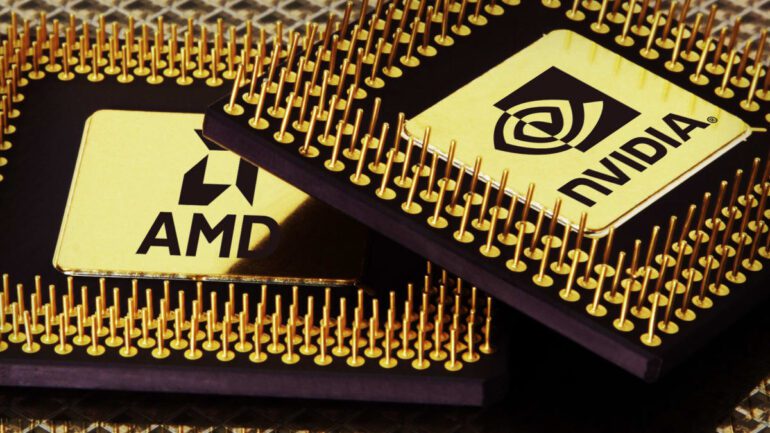TL;DR:
- Advanced Micro Devices (AMD) is emerging as a strong rival to Nvidia in the AI chip market.
- AI software firm MosaicML conducted a test comparing AMD’s MI250 chip to Nvidia’s A100 chip.
- Despite being one generation behind, AMD’s chip achieves 80% of Nvidia’s chip performance.
- This performance is attributed to improved AMD software and the use of PyTorch, an open-source software supported by Meta Platforms.
- MosaicML believes that upcoming software updates from AMD will enable its MI250 chip to match Nvidia’s A100 chip.
- Developers can already switch to AMD chips, as they are essentially interchangeable with Nvidia chips.
- MosaicML’s research highlights alternative chip options beyond Nvidia, reinforcing the importance of an open software ecosystem.
Main AI News:
Advanced Micro Devices (AMD) is making significant strides in the artificial intelligence (AI) chip space, with the potential to rival industry leader Nvidia Corp, according to a recent report by an AI software firm. While Nvidia currently dominates the market for powerful chips that underpin AI services like ChatGPT, the demand for alternatives is rising, driven by the increasing popularity of these services and a shortage of Nvidia’s chips.
The AI software firm, MosaicML, conducted a test comparing AMD’s MI250 chip and Nvidia’s A100 chip. Although both chips are one generation behind each company’s flagship offerings, they remain highly sought after. The test revealed that AMD’s chip achieves approximately 80% of the performance of Nvidia’s chip. This remarkable performance can be attributed to a combination of factors, including a new version of AMD’s software released last year and the use of PyTorch, an open-source software supported by Meta Platforms, released in March.
Hanlin Tang, Chief Technology Officer of MosaicML, expressed confidence in AMD’s potential, stating that further software updates currently in development should enable AMD’s MI250 chip to match the performance of Nvidia’s A100 chip. Tang emphasized that software is often the Achilles’ heel for many machine learning chip companies, and AMD has excelled in this aspect.
MosaicML utilized its advanced tools, leveraging PyTorch and AMD software, to train a large language model without any need for code modification. Tang affirmed that developers who can acquire AMD’s chips at the right price could effortlessly switch to them, as they are essentially interchangeable with Nvidia chips.
MosaicML, recently acquired for $1.3 billion, offers software solutions that facilitate the creation of AI systems within a company’s own data centers, eliminating the need to rely on external providers like OpenAI, the creator of ChatGPT. Conducting this research not only showcases Mosaic’s commitment to an open and easily implementable software ecosystem for AI training and inference on AMD hardware but also provides valuable chip options to its customers beyond Nvidia.
In response to MosaicML’s findings, AMD expressed its support for an open software ecosystem and its dedication to collaborating with Mosaic to optimize its software further. With ongoing advancements and collaboration, AMD’s AI chips are positioning themselves as a robust contender in the market, offering a viable alternative to Nvidia.
Conclusion:
The emergence of AMD as a formidable contender in the AI chip market presents both challenges and opportunities. With AMD’s chips already achieving 80% of Nvidia’s performance and further software updates in the pipeline, AMD is well-positioned to capture a significant market share. This intensifying competition will drive innovation and foster a more diverse and competitive AI chip landscape. As companies seek alternatives to overcome the shortage of Nvidia chips, AMD’s exceptional software capabilities and growing performance make it an appealing choice for businesses in the AI industry.

